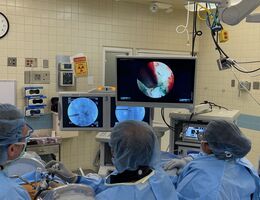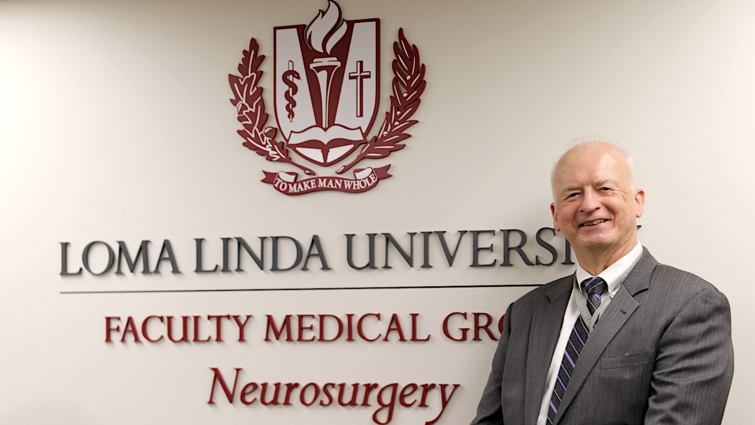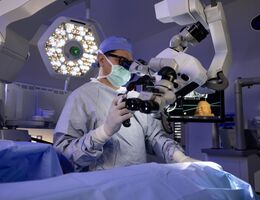

The neurosurgery department at LLUH takes a regional approach to specialty care delivery
Loma Linda University Medical Center's Department of Neurosurgery provides advanced, specialty care that extends far beyond the hospital walls. Through numerous partnerships with regional hospitals and clinics, patients in areas including Murrieta, Temecula, Apple Valley, Hesperia, Coachella Valley, Palm Springs, Rancho Mirage, and Hemet can access neurosurgery care without always needing to leave their community.
Depending on the nature of a patient’s injury or condition, some hospitals may not have the resources or expertise needed to provide the necessary level of treatment, especially in urgent cases. That’s why a partnership with LLUH, a tertiary/quaternary care hospital, is so valuable. Although healthcare describes levels of care using terms that may be unfamiliar to patients, it’s important to distinguish the level of care your clinic or hospital provides:
-
Primary care: a nurse or family practitioner providing routine, preventive services such as physical exams or vaccinations.
-
Secondary care: community hospital procedures like appendectomies, IV treatments, and minor surgeries.
-
Tertiary care: specialized procedures and complex multispecialty treatment, such as neurosurgery or advanced cardiac surgery. Often, a tertiary hospital has a medical school.
-
Quaternary care: highly specialized care like organ transplants or advanced neurocritical interventions.
LLUH offers full-spectrum care, meaning even patients in remote areas can have a direct connection to the highest-level neurosurgical care.
Gerald Szkotnicki, MHA, FACHE, Group Administrator of Neurosurgery and Executive Director of Loma Linda Neuroscience Institute, explains how this collaborative model benefits patients, providers, and the healthcare system as a whole.
Why community partnership matters
Strong relationships between LLUH neurosurgeons and community hospitals help support local medical teams to be able to keep stable patients close to home.
“Imagine a patient who fell off a bicycle and has mild, temporary neurological symptoms,” Szkotnicki explains. “That patient might be transferred by ambulance to an academic medical center hours away, only to learn that observation at their local hospital would have been appropriate.”
When patients with conditions that could be safely managed locally are automatically transferred to a tertiary hospital like LLUH, it can strain resources and delay care for patients' complex needs.
Instead, hospitals and clinics partnered with LLUH neurosurgeons can help community hospitals evaluate cases in real time by reviewing imaging remotely or advising local providers via telehealth.
These partnerships can address both emergencies and planned specialty treatment, including:
-
Stroke care: Loma Linda’s comprehensive stroke team consults with community hospitals to help evaluate patients who may need advanced intervention.
-
Spine surgery: Local physicians can refer patients for advanced evaluation and surgical options when conservative care no longer helps.
-
Epilepsy: A patient with worsening seizures might be referred to Loma Linda’s Level 4 Epilepsy Program, which combines continuous EEG monitoring and advanced imaging to pinpoint seizure origins and determine surgical options.
-
Tumor diagnosis: When brain imaging at a local facility shows a mass, neurosurgeons at Loma Linda can review scans remotely, advise on next steps, and arrange for follow-up or transfer if needed.
“Even if you live far from the Inland Empire, you still have access to this level of care,” Szkotnicki emphasizes. “We’re here to help, whether that means welcoming you to Loma Linda or working with your local doctor to keep you safely in your community.”
For more information, call 877-558-0800 or visit our website here.


